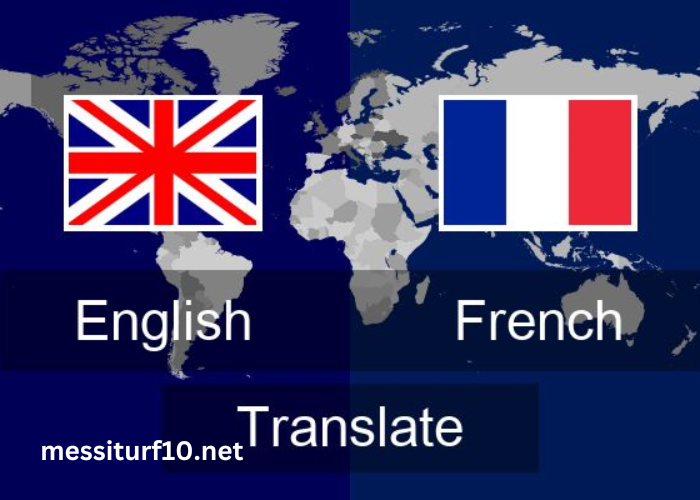In our increasingly interconnected world, the ability to communicate across language barriers is essential for personal, professional, and cultural interactions. As one of the most widely spoken languages globally, English serves as a bridge between diverse communities and cultures. However, to truly connect with French-speaking audiences, accurate translation from English to French is crucial. Join us as we embark on a journey to explore the art and science of translating English to French, uncovering strategies, challenges, and best practices along the way.
The Significance of English to French Translation
English and French stand as two of the most influential languages in the world, with rich histories and vibrant cultures. The ability to translate between these languages facilitates communication, fosters understanding, and promotes collaboration on a global scale. Whether for business, academia, or personal communication, accurate translation from English to French plays a pivotal role in breaking down linguistic barriers and building bridges between individuals and communities.
Understanding the Nuances of Translation
Translation is not merely about substituting words from one language into another; it involves capturing the essence, tone, and context of the source text while conveying it effectively in the target language. English and French possess distinct grammatical structures, vocabulary, and cultural nuances, making translation a complex and nuanced process. Translators must navigate these differences skillfully, employing various techniques and strategies to ensure accurate and culturally appropriate translations.
Challenges in English to French Translation
Translating from English to French presents a range of challenges, from linguistic differences to cultural nuances. Idioms, colloquialisms, and cultural references may not have direct equivalents in the target language, requiring translators to adapt and creatively convey meaning while preserving the integrity of the original text. Additionally, nuances in tone, style, and register must be carefully considered to maintain the intended impact and readability of the translation.
Strategies for Effective Translation
To achieve successful translation from English to French, translators employ a range of strategies tailored to the specific context and content of the text. These strategies may include:
Understanding the Source Text: Before translation begins, translators must thoroughly understand the source text, including its subject matter, tone, and intended audience. This understanding serves as the foundation for producing an accurate and contextually appropriate translation.
Adaptng to Linguistic Differences: English and French have distinct linguistic structures and conventions. Translators must navigate these differences by employing techniques such as transposition, modulation, and cultural adaptation to convey meaning accurately in the target language.
Preserving Cultural Nuances: Language and culture are intricately linked, and effective translation requires sensitivity to cultural nuances and conventions. Translators must ensure that cultural references, idiomatic expressions, and nuances in tone are accurately conveyed in the translation to resonate with the target audience.
Utilizing Translation Tools: In today’s digital age, translators have access to a plethora of translation tools and resources that can enhance efficiency and accuracy. Computer-assisted translation (CAT) software, online dictionaries, and terminology databases can aid in terminology consistency and streamline the translation process.
Seeking Feedback and Revision: Translation is an iterative process, and seeking feedback from native speakers and subject matter experts can help ensure the quality and accuracy of the translation. Revisions and refinements based on feedback contribute to producing a polished and professional final translation.
Conclusion
In conclusion, translating English to French is a multifaceted endeavor that requires linguistic expertise, cultural sensitivity, and strategic thinking. Whether for business, academic, or personal purposes, accurate translation plays a vital role in facilitating communication and fostering connections across linguistic divides. By employing effective strategies, utilizing appropriate tools, and embracing the iterative nature of translation, translators can navigate the complexities of language conversion with confidence and precision, bridging the gap between English and French-speaking audiences and enriching cross-cultural communication.


